SMOKEY ROBINSON / “Smokey’s Love Songs” Mixtape
Smokey.
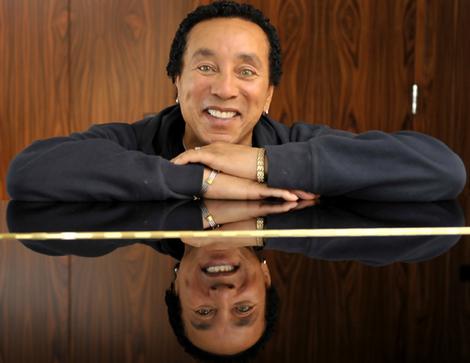 One word that means a whole lot to adults over the age of thirty. If you want a taste of just how passionate people feel about Smokey, visit the comments section of a BoL write-up on Smokey back on my birthday, March 24, 2008—damn, BoL is getting old. In internet years we’re senior citizens because one earth year is like a decade in computer terms.
But today we’re discussing Smokey and love songs, not computers and the internet.
William ‘Smokey’ Robinson was born February 19, 1940 in Detroit. When Smokey was 16, he met Berry Gordy at an audition, which Smokey and crew didn’t win. At that point Gordy had already broken into the music business as a song writer and was very impressed by Smokey as a songwriter.
Berry approached Smokey and wanted to know about the songs Smokey sang. Smokey told Berry the songs were all originals and he had a bunch more. Berry asked to hear some of Smokey’s songs. An impromptu listening session resulted in Berry giving an off-the-cuff but sensitive and considerate critique of Smokey’s songs.
The two bonded as music professionals and went on to make entertainment history, Gordy as president and Robinson as his vice-president at the newly founded Tamla Records, which shortly thereafter reincorporated as Motown Records. Between Gordy’s grooming abilities and Robinson’s eye for talent (Smokey signed to Motown the girl group that became the Supremes) as well as Smokey’s songwriting abilities, the two men succeeded in crafting “the sound of young America.”
Bluesandsoul.com interviewed Smokey and offers us the capsule version of the start-of-Motown story.
One word that means a whole lot to adults over the age of thirty. If you want a taste of just how passionate people feel about Smokey, visit the comments section of a BoL write-up on Smokey back on my birthday, March 24, 2008—damn, BoL is getting old. In internet years we’re senior citizens because one earth year is like a decade in computer terms.
But today we’re discussing Smokey and love songs, not computers and the internet.
William ‘Smokey’ Robinson was born February 19, 1940 in Detroit. When Smokey was 16, he met Berry Gordy at an audition, which Smokey and crew didn’t win. At that point Gordy had already broken into the music business as a song writer and was very impressed by Smokey as a songwriter.
Berry approached Smokey and wanted to know about the songs Smokey sang. Smokey told Berry the songs were all originals and he had a bunch more. Berry asked to hear some of Smokey’s songs. An impromptu listening session resulted in Berry giving an off-the-cuff but sensitive and considerate critique of Smokey’s songs.
The two bonded as music professionals and went on to make entertainment history, Gordy as president and Robinson as his vice-president at the newly founded Tamla Records, which shortly thereafter reincorporated as Motown Records. Between Gordy’s grooming abilities and Robinson’s eye for talent (Smokey signed to Motown the girl group that became the Supremes) as well as Smokey’s songwriting abilities, the two men succeeded in crafting “the sound of young America.”
Bluesandsoul.com interviewed Smokey and offers us the capsule version of the start-of-Motown story.
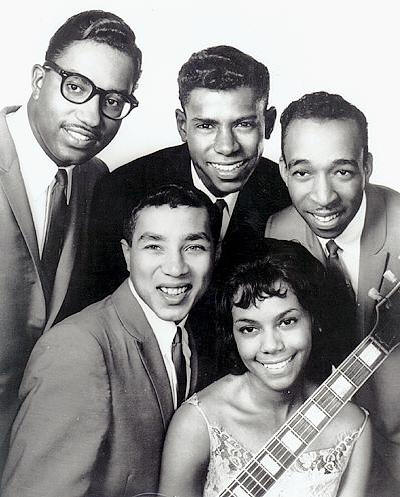
Smokey Robinson was raised by his mother and two sisters and grew up surrounded by the music of jazz greats like Sarah Vaughn, Billy Eckstine, Count Basie and Duke Ellington. In 1954 he joined with high school friends Bobby Rogers, Pete Moore and Ronnie White to form a vocal group which became The Metadors; whose sister group, The Metadorettes, included Bobby's sister Claudette in their line-up. Smokey takes up the story: "Shortly after we graduated from High School we had the chance to audition for Jackie Wilson's manager", he remembers: "Claudette would always come to our rehearsals and so, since she knew some of our material, we took her down to the audition with us. But Jackie Wilson's managers weren't impressed at all, they rejected us because we looked too much like The Platters, who were already out and also comprised four guys and a girl with a guy lead who sang high. However, Berry Gordy - who at that time was the songwriter for Jackie Wilson - was there, and he was very impressed 'cause he hadn't heard any of the songs that we sang. He came outside afterwards and introduced himself, and then I knew immediately who he was because I had ALL Jackie Wilson's records and I always looked on records and songs to see who'd written them! He critiqued them - he was very patient with me, and he actually was the first one who showed me how to write songs. From that moment on he and I were friends and, after I'd known him for about a year or so, he started Motown." Before forming the label, Gordy produced some records for Smokey's group who by now were called The Miracles: "Berry had already produced a record for us called 'Get A Job' which was our very first record and released out of New York on this record company called End Records. Then we made another record for them called 'I Need Some Money' backed with a song called 'I Cried'. So we had two records on the End label in New York. And they didn't pay us! So Berry just said he was going to start his OWN record company, and the first Motown record ever was on the Tamla label - a record called 'Come To Me' by an artist named Marv Johnson, but the company was only set up for local distribution. Then we, The Miracles, released a record called 'Bad Girl' on Motown locally, and it was just like a big smash hit in Detroit and the surrounding areas. So Berry sold our national distribution rights, for two records only, to Chess Records in Chicago - and THEY didn't pay us! So then our next record was 'Way Over There' and Berry and I were talking one day, and I said 'Hey man, why don't you just go national with this record because, you know, nobody's paying us anywhere. So what have you got to lose?'... So he did - and 'Way Over There' by The Miracles was the very first Motown record that was a national release, and that was the birth of what started to happen!"
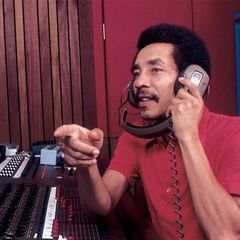 The focus of this Mixtape is not on Smokey’s long and long-lasting career as both a singer and a song writer in general, instead we are focusing on Smokey’s love songs. In the post-fifties years no one else has written as many popular love songs.
I started my deep interest in music as a jazzhead but I was also a teenager in the fifties and early sixties, plus I was a budding poet. I could not help but be significantly influenced by the man whom both Amiri Baraka and Bob Dylan considered “our greatest” living songwriting poet.
Smokey credits Barry Gordy with helping to develop the songwriting skill. An in-depth feature in Entertainment Weekly presented the inside scoop.
The focus of this Mixtape is not on Smokey’s long and long-lasting career as both a singer and a song writer in general, instead we are focusing on Smokey’s love songs. In the post-fifties years no one else has written as many popular love songs.
I started my deep interest in music as a jazzhead but I was also a teenager in the fifties and early sixties, plus I was a budding poet. I could not help but be significantly influenced by the man whom both Amiri Baraka and Bob Dylan considered “our greatest” living songwriting poet.
Smokey credits Barry Gordy with helping to develop the songwriting skill. An in-depth feature in Entertainment Weekly presented the inside scoop.
It was the summer of '57, and Smokey had just graduated from high school. His singing group, now called the Matadors, had snagged an audition with Nat Tarnopol, who managed one of Smokey's heroes, singer Jackie Wilson. As it happened, the Matadors failed to impress Tarnopol. But Gordy, who witnessed the tryout, saw something in the ''delightful-looking kid'' with the high voice, some combination of freshness and verve, raw talent and passion, that made him pull Smokey aside. ''I was more or less just feeling sorry for him, because he had worked really hard and his stuff was so good,'' says Gordy, then a 28-year-old songwriter with a few hits under his belt. ''When I talked to him, he told me he had not only written those songs [he'd sung], but that he had a hundred more.'' Gordy immediately expressed interest in hearing the tunes, and escorted Smokey to a small room with a piano. ''I must have sung about 20 songs for him that day,'' says Smokey. ''He was very patient, he critiqued all of them. He thought I was a good rhymer, but that my songs had no continuity. He made me understand that a song was like a short story, or a movie, or a book, that has a beginning, middle, and end that tie in together. He and I struck up a friendship that day that has been everlasting.'' —Entertainment Weekly
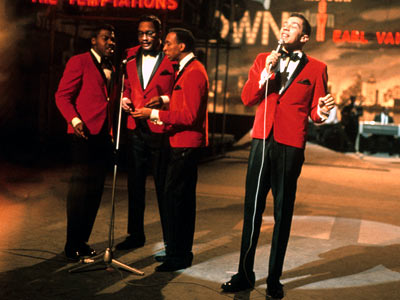 Smokey is clear. Although he has written a handful of topical songs addressing issues of their day, Smokey’s main focus has been on the timeless subject of love.
Smokey is clear. Although he has written a handful of topical songs addressing issues of their day, Smokey’s main focus has been on the timeless subject of love.
''Songwriting is a craft,'' he says. ''There are no new words, no new notes, probably no new ideas. So you have to take the old stuff and write about it differently, try to say it in a way that's unique and fresh.'' —Smokey Robinson
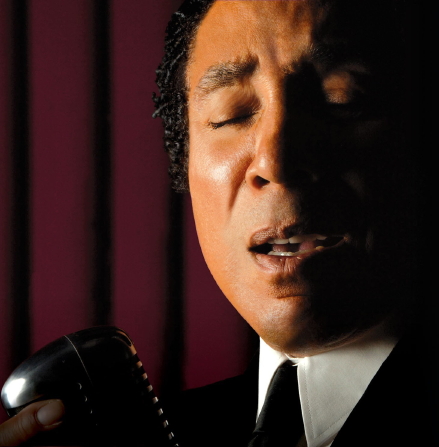
If you write about a dance, about cars or political situations, sooner or later your material sounds passe, dated. But love always has its significance, it never goes out of style… —Smokey Robinson
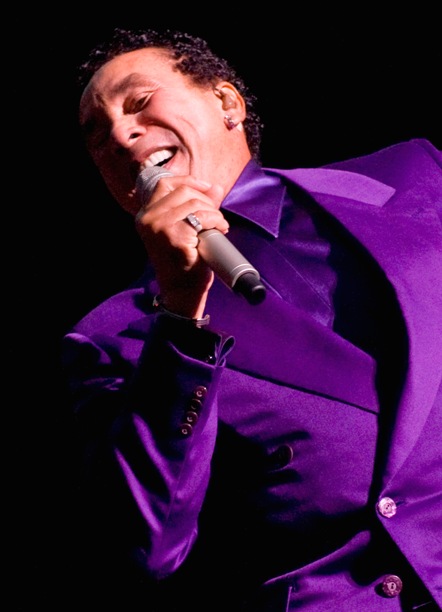 Towards the middle of the Mixtape are three live recordings that are followed by the more famous studio versions. The live cuts illustrate Smokey’s power as a performing artist.
I’m gong to close on a trivia note. I never knew where the name “Smokey” came from. Yall know how our people are with nicknames, stage names, and such. The Entertainment Weekly feature gave a rundown that made me proud. Why? Well, because with his looks, Smokey could easily have passed over into the “light, bright, damn near white” world that was considered a major plus when Smokey was growing up.
Although he didn’t wear his politics on his sleeve, I always had an affinity for the way he carried himself, including wearing dreads when he was over fifty. Smokey loves himself and his people. Smokey loves life. All of that shines through, a luminous core radiating from the center of all his love songs.
Towards the middle of the Mixtape are three live recordings that are followed by the more famous studio versions. The live cuts illustrate Smokey’s power as a performing artist.
I’m gong to close on a trivia note. I never knew where the name “Smokey” came from. Yall know how our people are with nicknames, stage names, and such. The Entertainment Weekly feature gave a rundown that made me proud. Why? Well, because with his looks, Smokey could easily have passed over into the “light, bright, damn near white” world that was considered a major plus when Smokey was growing up.
Although he didn’t wear his politics on his sleeve, I always had an affinity for the way he carried himself, including wearing dreads when he was over fifty. Smokey loves himself and his people. Smokey loves life. All of that shines through, a luminous core radiating from the center of all his love songs.
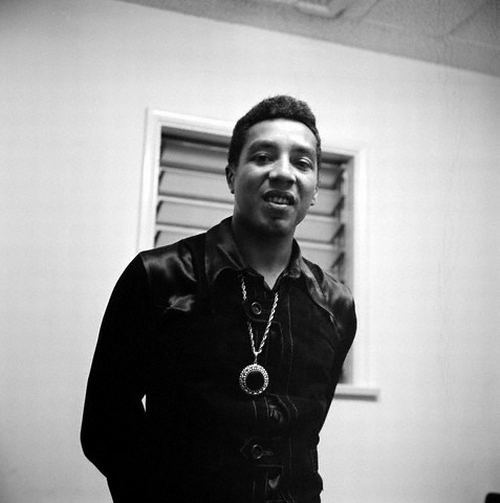
The son of a bowling-alley pinsetter and a housewife, William Robinson Jr. was born Feb. 19, 1940, on Belmont Street in the North End of Detroit. When he was 6 or 7, his Uncle Claude christened him ''Smokey Joe,'' which the young William, a Western-movie enthusiast, at first assumed to be ''his cowboy name for me.'' Some time later, he learned the deeper significance of his nickname: It derived from ''smokey,'' a pejorative term for dark-skinned blacks. ''I'm doing this,'' his uncle told the light-skinned boy, ''so you won't ever forget that you're black.'' The name — and lesson — stuck, a lifelong symbol of poetic irony at its sharpest. —Entertainment WeeklyAs the world spins and musical trends change, we might be seduced by an addiction to newness that will lead us to forget from whence we came, but once having heard a number of these songs, how can anyone ever forget to remember the music of William 'Smokey' Robinson? I know that as long as I have ears to hear and heart to feel, a quiet storm of Smokey songs will stay secure, soft and warm at the center of my being. —Kalamu ya Salaam Smokey’s Love Songs Mixtape Playlist
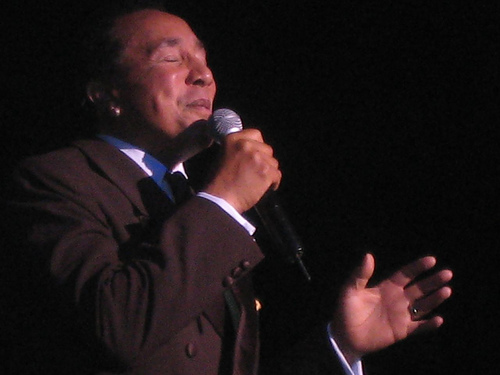 There is something almost magical in the depth and breadth of Smokey’s ability to illustrate and illuminate the nuances and phases of love, especially the intricacies of romantic love both when love is wildly wonderful and when love turns confoundingly complex. From the miracle of an improbable joining together to the misery of a despair filled breakup, Smokey has been able to capture the full spectrum, and has generally done so in four minutes or less.
He has copyrighted over 2,000 songs and at least a hundred or so of those songs have been charted hits for a plethora of artists both on Motown and other labels. This Mixtape presents “some” of Smokey’s most enduring love songs.
There is something almost magical in the depth and breadth of Smokey’s ability to illustrate and illuminate the nuances and phases of love, especially the intricacies of romantic love both when love is wildly wonderful and when love turns confoundingly complex. From the miracle of an improbable joining together to the misery of a despair filled breakup, Smokey has been able to capture the full spectrum, and has generally done so in four minutes or less.
He has copyrighted over 2,000 songs and at least a hundred or so of those songs have been charted hits for a plethora of artists both on Motown and other labels. This Mixtape presents “some” of Smokey’s most enduring love songs.
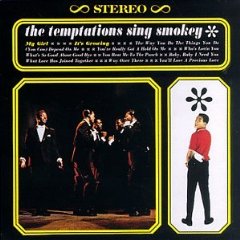 The first seven selections are from The Temptations Sing Smokey
01 “My Girl”
02 “The Way You Do The Things You Do”
03 “It's Growing”
04 “Who's Lovin' You”
05 “What's So Good About Goodbye”
06 “You'll Lose A Precious Love”
07 “(You Can) Depend On Me”
The first seven selections are from The Temptations Sing Smokey
01 “My Girl”
02 “The Way You Do The Things You Do”
03 “It's Growing”
04 “Who's Lovin' You”
05 “What's So Good About Goodbye”
06 “You'll Lose A Precious Love”
07 “(You Can) Depend On Me”
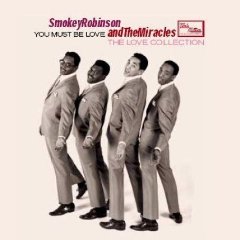 These two tracks are from You Must Be Love The Love Collection - Smokey Robinson and The Miracles
08 “You've Really Got A Hold On Me”
09 “What Love Has Joined Together”
These two tracks are from You Must Be Love The Love Collection - Smokey Robinson and The Miracles
08 “You've Really Got A Hold On Me”
09 “What Love Has Joined Together”
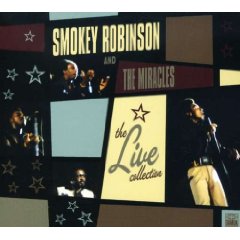 The next three tracks are from Live! Smokey - Robinson & The Miracles
10 “I Second That Emotion”
11 “Ooo Baby Baby”
12 “The Tracks Of My Tears”
The next three tracks are from Live! Smokey - Robinson & The Miracles
10 “I Second That Emotion”
11 “Ooo Baby Baby”
12 “The Tracks Of My Tears”
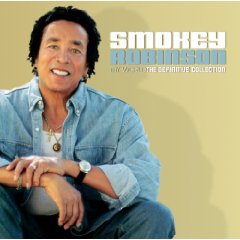 These tracks are from My World The Definitive Collection - Smokey Robinson
13 “I Second That Emotion”
14 “Ooh Baby Baby”
15 “The Tracks Of My Tears”
16 “The Tears Of A Clown”
17 “Just To See Her”
18 “Cruisin' “
19 “Being With You”
20 “Baby That's Backatcha”
21 “More Love”
22 “Baby Come Close”
23 “I've Made Love To You A Thousand Times”
24 “Let Me Be The Clock”
These tracks are from My World The Definitive Collection - Smokey Robinson
13 “I Second That Emotion”
14 “Ooh Baby Baby”
15 “The Tracks Of My Tears”
16 “The Tears Of A Clown”
17 “Just To See Her”
18 “Cruisin' “
19 “Being With You”
20 “Baby That's Backatcha”
21 “More Love”
22 “Baby Come Close”
23 “I've Made Love To You A Thousand Times”
24 “Let Me Be The Clock”
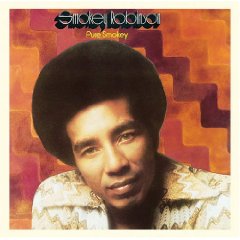 Two tender and totally deep, off-the-beaten-path love songs from Pure Smokey.
25 “Virgin Man”
26 “Shes Only A Baby Herself”
Two tender and totally deep, off-the-beaten-path love songs from Pure Smokey.
25 “Virgin Man”
26 “Shes Only A Baby Herself”
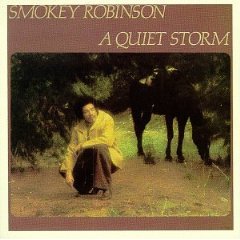 The last two tracks are from the classic album A Quiet Storm
27 “The Agony And The Ecstasy”
28 “A Quiet Storm”
The last two tracks are from the classic album A Quiet Storm
27 “The Agony And The Ecstasy”
28 “A Quiet Storm”
This entry was posted on Monday, February 8th, 2010 at 4:53 am and is filed under Classic. You can follow any responses to this entry through the RSS 2.0 feed. You can leave a response, or trackback from your own site.
Leave a Reply
| top |